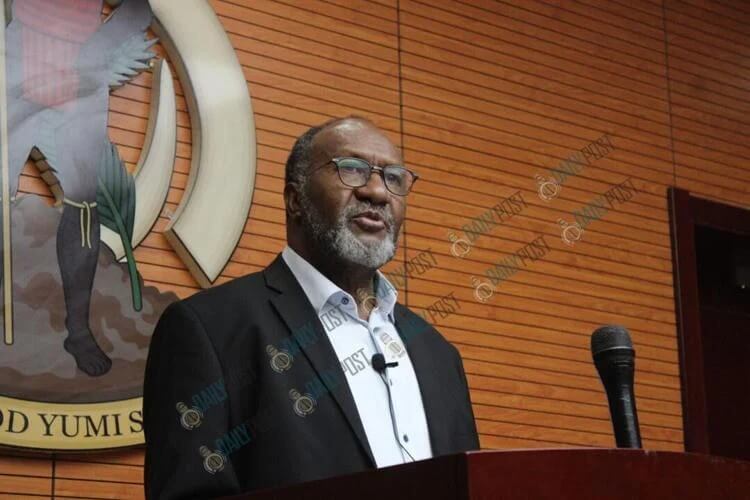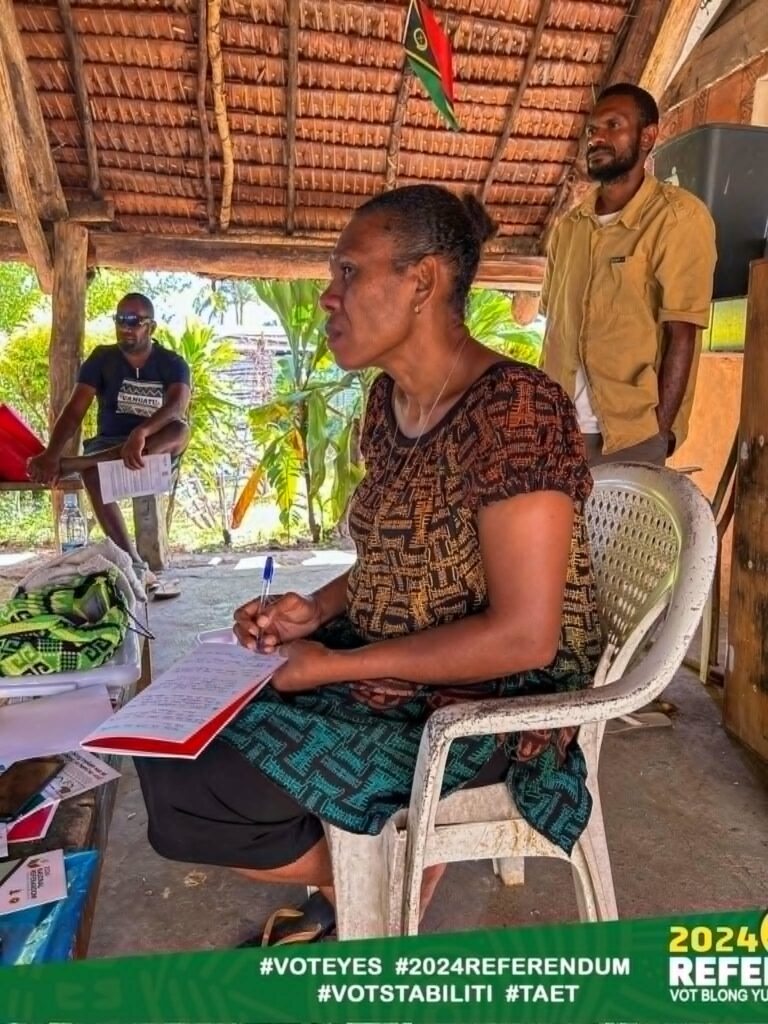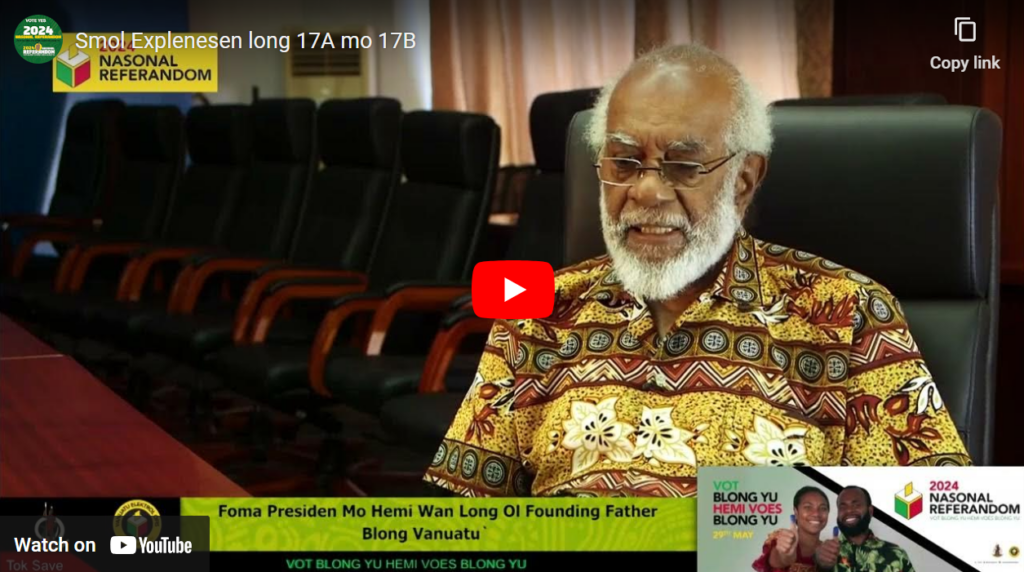By Doddy Morris.

The main reason for political instability in Vanuatu is that there are too many political parties and the frequent switching of sides by politicians.
This was conveyed by Prime Minister (PM) Charlot Salwai at a press conference yesterday in regards to the upcoming Referendum, as he listed these factors as major obstacles to maintaining Government stability.
The PM reflected on Vanuatu’s political history after independence in 1980, when there were only two political parties, Vanua’aku Pati (VP) and Union of Moderate Parties (UMP).
“Over time, the original two parties split, leading to the rise of new political factions. Initially, under the leadership of the first Prime Minister, Walter Lini, a government was formed and lasted for 11 years,” PM Salwai said.
“The first coalition government was established in 1991, led by former Prime Minister Maxime Carlot Korman. Subsequently, more parties have arisen, facilitated by the Constitutional provision outlined in Article 4, which permits the formation of political parties.
“Vanuatu’s diverse interests have historically led to divisions. As an island nation, each island has its own distinct culture, customs, and religions, contributing to the increase of political groups.
“Additionally, the historical presence of colonial powers, England and France, has influenced the political landscape.”
He pointed out the importance of learning from past lessons. Often there is speculation surrounding Members of Parliament (MPs) switching sides, particularly among those within the government where multiple political parties and candidates exist.
Despite the presence of numerous political parties, previously there has been a lack of legislation to regulate them.
“We now have the means to regulate political parties by requiring the registration of their constitution and policies, ensuring compliance with the Vanuatu Financial Services Commission (VFSC) rules and regulations from the electoral office, which was previously absent,” PM Salwai said
“Political stability is maintained through the freedom to switch between parties. However, it’s important to note that amendments 17A and 17B address the management of MPs rather than crossing the floor.
“If elected under a specific party, crossing the floor to join another party is not allowed. Individuals who choose to do so risk losing their parliamentary seat if recommended by the party executive to the Speaker of Parliament.”
PM Salwai reiterated that should the Government fail to uphold stability, they must consider legislating to regulate political movements.
“This legislation does not affect an individual MP’s rights that much; it’s only to ensure stability and empower political parties in government formation,” he explained.
“Currently, MPs can switch parties freely, though previous attempts to vacate seats of MPs who defected were deemed unconstitutional by the courts, prompting the need for a referendum.”
The head of the Vanuatu Government added that he has noticed more small independent political parties emerging, and their numbers are growing. This is why the government needs to introduce new laws to deal with this issue. If they don’t, the problem will only get worse, making it difficult to manage political instability and maintain stability.
PM Salwai also mentioned that the National Referendum campaign is going well, and they had received positive feedback from some of the communities they had visited.
Source: dailypost.vu


